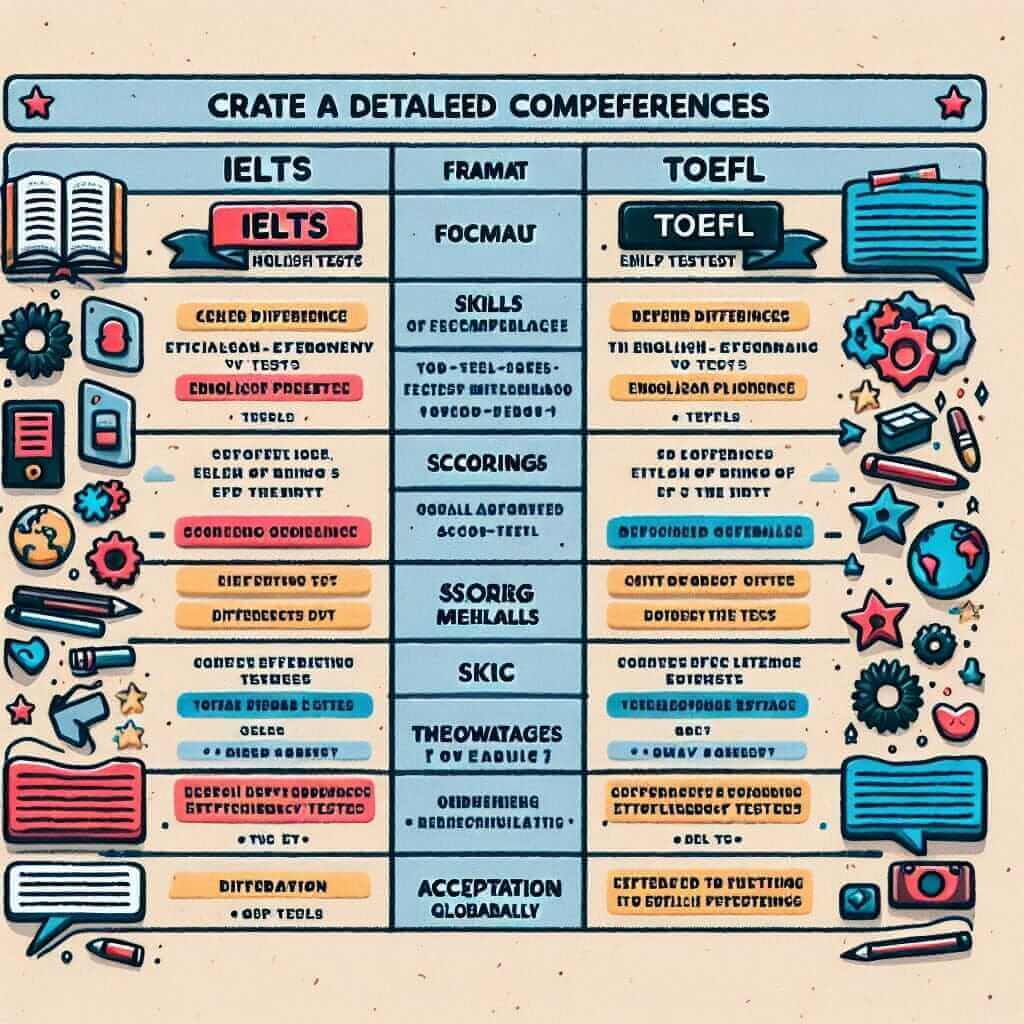Introduction: Navigating the World of English Proficiency Exams
Embarking on an academic or professional journey often requires demonstrating English language proficiency, and two prominent tests stand out: IELTS (International English Language Testing System) and TOEFL (Test of English as a Foreign Language). With over two decades of experience teaching English as a Second Language (ESL) and guiding students towards IELTS success, I often encounter the question, “Which test should I choose: IELTS or TOEFL?” This article provides a comprehensive comparison to empower you to make an informed decision.
Understanding the Nuances: IELTS vs. TOEFL
What is IELTS?
IELTS, jointly managed by the British Council, IDP: IELTS Australia, and Cambridge Assessment English, evaluates English language proficiency across four modules: Listening, Reading, Writing, and Speaking. It offers two formats:
- Academic: Designed for higher education admissions and professional registration.
- General Training: Suited for migration to English-speaking countries and work experience.
What is TOEFL?
TOEFL, developed and administered by ETS (Educational Testing Service), primarily focuses on academic English proficiency. It is administered entirely online and assesses four skills: Reading, Listening, Speaking, and Writing.

Key Considerations: Choosing the Right Test
1. Recognition and Acceptance
- IELTS: Widely recognized by universities and organizations in the UK, Australia, Canada, New Zealand, and over 10,000 institutions globally.
- TOEFL: Predominantly accepted by universities in the USA and Canada, along with institutions in over 150 countries.
Recommendation: Research the specific requirements of the institutions or organizations you’re targeting to determine their preferred test.
2. Test Format and Content
- IELTS: Offers both paper-based and computer-delivered formats. It incorporates a wider range of accents and features face-to-face speaking interactions.
- TOEFL: Exclusively a computer-based test with American English accents and integrated tasks in the Writing and Speaking sections.
Recommendation: Consider your comfort level with computer-based testing and preference for English accents.
3. Scoring and Score Validity
- IELTS: Scored on a band scale of 0-9, with 9 being the highest. Scores are valid for two years.
- TOEFL: Scored out of 120, with individual section scores contributing to the total. Scores are valid for two years.
Recommendation: Check the required score range for your chosen institutions or organizations.
Example Scenarios: IELTS or TOEFL?
- Applying to a UK university: IELTS Academic is generally preferred.
- Seeking admission to a US university: TOEFL is often the primary requirement.
- Migrating to Australia: IELTS General Training is commonly required.
Tips for Success: Preparing for Your Chosen Test
- Familiarize yourself with the test format: Understand the structure, timings, and question types.
- Practice regularly: Use official practice materials and mock tests to refine your skills.
- Improve your vocabulary and grammar: Build a strong foundation in English language fundamentals.
- Develop effective test-taking strategies: Learn time management techniques and approaches for different question types.
- Seek guidance from experienced educators: Consider taking an IELTS or TOEFL preparation course.
Conclusion: Your Pathway to English Language Success
Choosing between IELTS and TOEFL depends on your specific goals and preferences. By carefully considering the factors outlined in this article, you can confidently select the test that aligns with your aspirations. Remember, thorough preparation is key to achieving your desired score and unlocking opportunities in the English-speaking world.